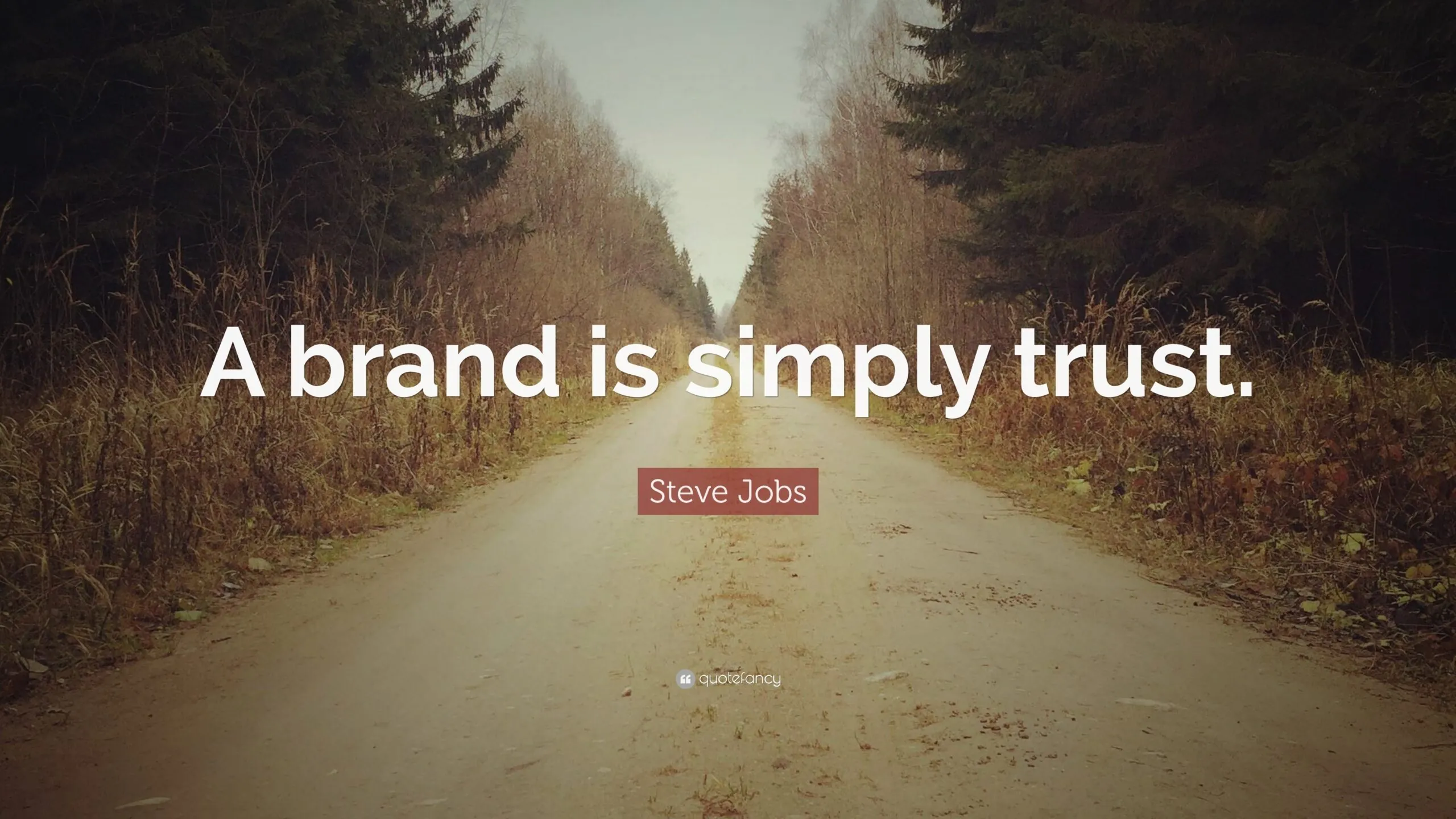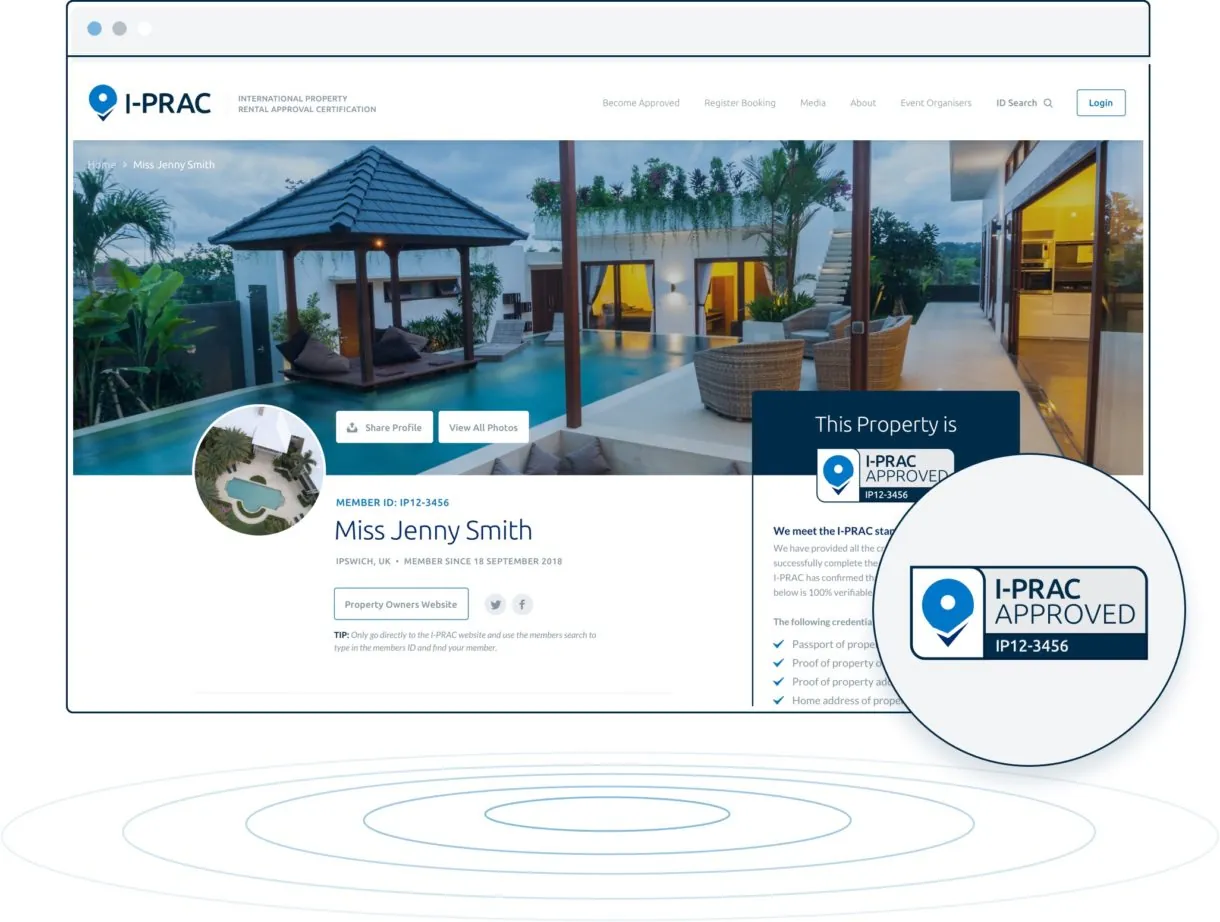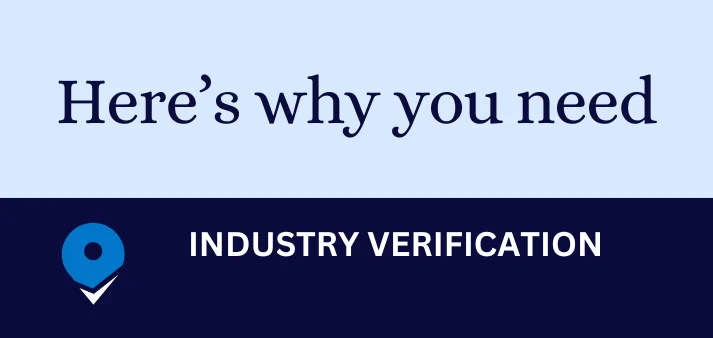There’s a steady and reassuring uptake on verification badges for companies across the board. However, these accreditations have also welcomed criticism – mostly from operators who are doubtful of the immediate ‘need’ to prove themselves as legitimate. After all, if they know for certain that they’re running their business in-line with the law, then what good does spending additional money to confirm something that is supposedly ‘obvious’ to them going to achieve, right?
Wrong.
The problem is, not only is this mindset dangerously self-indulgent (and by ‘dangerously’, we mean it’s costing businesses money), it does nothing to address the concerns of consumers. We’ve all heard the saying: Assumption is the mother of all mistakes – so, if you, as a short-term rental host, are assuming that guests are instinctively aware of your credibility, you’re probably leaving a chunk of business on the table.
Consumer trust remains the #1 deciding factor before people part with their money
Edelman recently found that 70% of consumers must trust a company before making a purchase with them. As I-PRAC has already covered in past articles, this need for trust is likely to increase depending on the size of the investment the consumer has been asked to make.

For example, a guest visiting a new cafe on their own for a bagel and a coffee before rushing into work doesn’t necessarily require a life-changing investment (of time and money) on their part. Even in the worst case scenario, if the guest dislikes the cafe experience and the quality of food and drink, they’ll have lost between £10 to £15 and around 30 minutes of their time.
Of course, this doesn’t justify the bad experience – but it’s likely that this experience will be easier for the guest to recover from.
Now, if that same guest visits a new restaurant for dinner, along with a group of friends – the stakes are immediately raised. Not only is the cost of this experience going to be higher, the guest is also responsible for their friends – who have trusted their decision. A bad experience in this case, will take longer to recover from.
The point is, as a short-term rental host, when you’re facing the proven fact that 70% of consumers need to trust a brand before spending money with them – you must also consider that your consumers in particular have a lot more on the line. In fact, it’s likely that the aforementioned statistic would be even higher if Edelman had conducted this survey solely for the short-term rental industry.
A guest looking to book STR accommodation has a whole host of conscious and subconscious concerns – that the majority of hosts haven’t considered; and therefore fail to address across their website and marketing.
These might include (but are not limited to):
🚩 Will this property actually look like the photos in this listing, in real life?
🚩 Will my family/friends be comfortable here, as I’m booking this property on behalf of us all (and they’ve trusted me with their money to do this)
🚩 I’m travelling with children and/or guests who need accessible accommodation – does this property actually tick all the boxes?
🚩 This property is being booked for a special occasion (birthday, anniversary, honeymoon) – how can I be 100% sure that we will be satisfied, because this occasion means a lot to me and my loved ones?
Now, consider, if even one of these concerns are not adequately addressed, it will more than likely cost you as the short-term rental host, the entire booking.
Booking accommodation is not the same as visiting a new cafe for breakfast. Remember, the level of investment is much higher for guests (from a financial, emotional, and social standpoint) – and so, industry verification is the only way you can guarantee full peace of mind and consequently, a successful transaction.
Guests want more than just knowing you ‘exist’
Over the years, industry accreditation has developed a sombre, borderline boring reputation. Many are still under the misunderstanding that a verification badge does nothing more than prove the legitimacy of a company – but where I-PRAC is concerned, this couldn’t be farther from the truth.

While I-PRAC verification does first-and-foremost protect guests from holiday rental fraud (still a massive deal, given that 56,000 fake listings were reported on Airbnb alone last year) – being I-PRAC Approved means that hosts can also address all the other concerns that guests are more than likely to have, before making a booking.
So, as well as guaranteeing protection from fraudulent operators – I-PRAC Approved hosts can confidently state:
✅ Yes, what you see on this property listing is exactly what you will find upon arrival too
✅ Yes, if we have listed features for accessibility and for families with young children, you’re guaranteed to find them (in the best condition) at the property
✅ Yes, you’re protecting your reputation among your family and friends (and also their money and peace of mind), because if on the unlikely occasion something does go wrong, then I-PRAC will compensate you in full
The above (which is a brief snapshot of what I-PRAC verification guarantees) is marketing gold for short-term rental hosts, who are savvy enough to leverage it.
The equation is simple: If the world’s leading researchers are telling you that the majority of purchasing decisions are based on levels of trust and you have a tool that you can 100% earn this trust with, then industry verification should be at the top of your priorities.
If you also see how verification is a no-brainer in an industry that is fostered on relationships of trust, contact Neely Khan for more information about becoming I-PRAC Approved – and we’ll also help you communicate the benefits of I-PRAC verification to your audience (so you can convert them into paying guests).
Neely Khan: [email protected]



